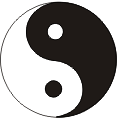Earlier, in the first post of this thread, I showed how a Moral Ought can be derived from some “is” statements., statements that can be confirmed by observations, by a consensus of trained observers.
We measure our ideas against science, and science measures everything. We can, (given the scientific definition of terms, such as “Ethics”; along with the Axiom of Ethics as science, which reads: Ethical individuals approve of efforts to make things morally better) derive such conclusions as “Murder is wrong.”
We can even derive “unprovoked aggression is wrong” because we have shown [in earlier threads and in the selections linked to below in the signature] how “Do no harm!” is derived. Robert S. Hartman has provided us with a measuring tool, the Hartman Value Profile – which produces as many as 60 scores relevant to moral health concerns.
Science is the measure of all things; it measures the Universe and its parts. It turns black-or-white rigidities into shades of gray. …and “even these shades of gray may at the edges become fuzzy,” Bart Kosko tells us. [size=54][To measure those we need to employ decimal fractions, such as is done in dynamic mechanical balancing systems. See the mathematics of – what is unfortunately named – or misnamed – “Fuzzy Logic”. This math may turn out to be very useful for Ethics.][/size]
There are laws of nature – at the Newtonian level – and, it is the case that humans are a part of nature, and thus subject to those laws. Human laws are subject to natural law, to the law that every effect has a cause. Yet the fact is that the metalanguage for the new Science of Ethics avoids committing what G. E. Moore named “The Naturalistic Fallacy.”
Since the term “wrong” is well-defined in the system, and “Do no harm” is a theorem in that system, what other theorems follow from this? Here are some of them: Hurling insults (personal ad hominem attacks) is wrong. Psychological abuse is wrong. Violence is wrong. War is wrong. Pollution is wrong. Claiming “Everything is permissible!” is wrong. Stealing, shoplifting, cheating and fraud are wrong – for they do harm.
As should be obvious, all of the above derivations DO NOT constitute moralizing and should not be confused with it. They are not telling anyone how to liive, they are simply deuctions awaiting experimental design for many of them are testable. These claims and predictions within the theory of the new paradigm can be matched to facts, to observations. They will correspond to reality. The Coherence Theory of Truth {a mere Systemic value} is not enough. Fairy tales can cohere. In contrast, science, including Ethics as science, prefers {an Extrinsic value} The Correspondence Theory of Truth: match statements and beliefs to facts and evidence.
The theorems of Ethics as science are true by observation, not just derivation from an earlier axiom. The most basic assumption that is made, in the metalanguage for this Ethics paradigm is that every concept has an intension and an extension. The rest, the definitions of “good” and “bad,” as well as the remainder of the theory follows from that premise. See the early pages of ETHICS; A College Course for the details as to how it is managed. Many critical thinkers familiar with Logic, have through the years found that premise to be reasonable and acceptable. It has stood the test of time.
![]()
![]()
